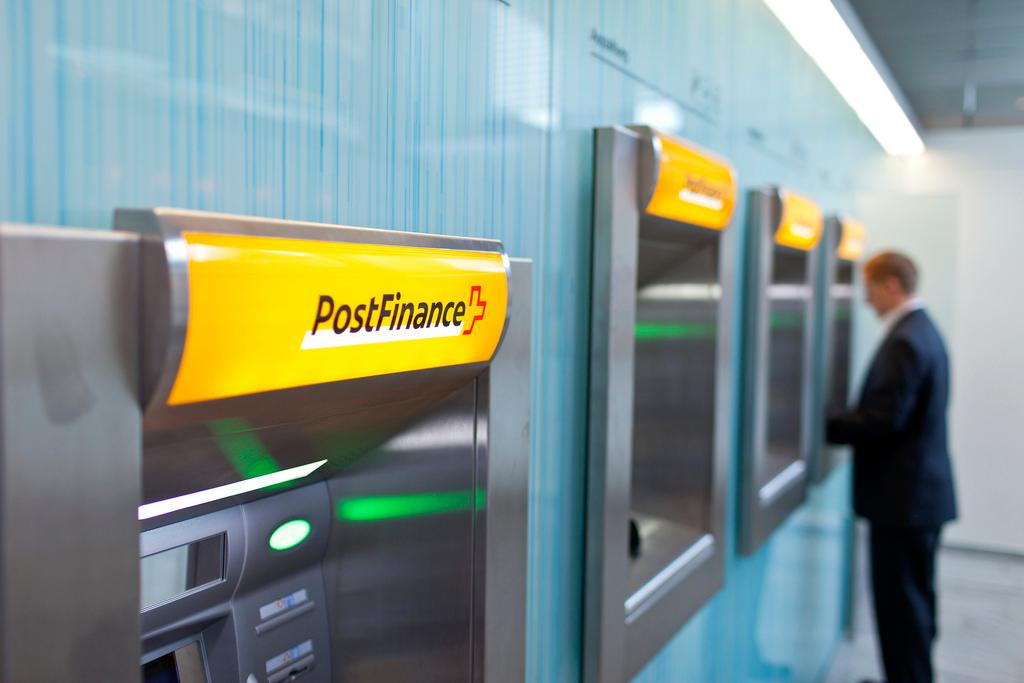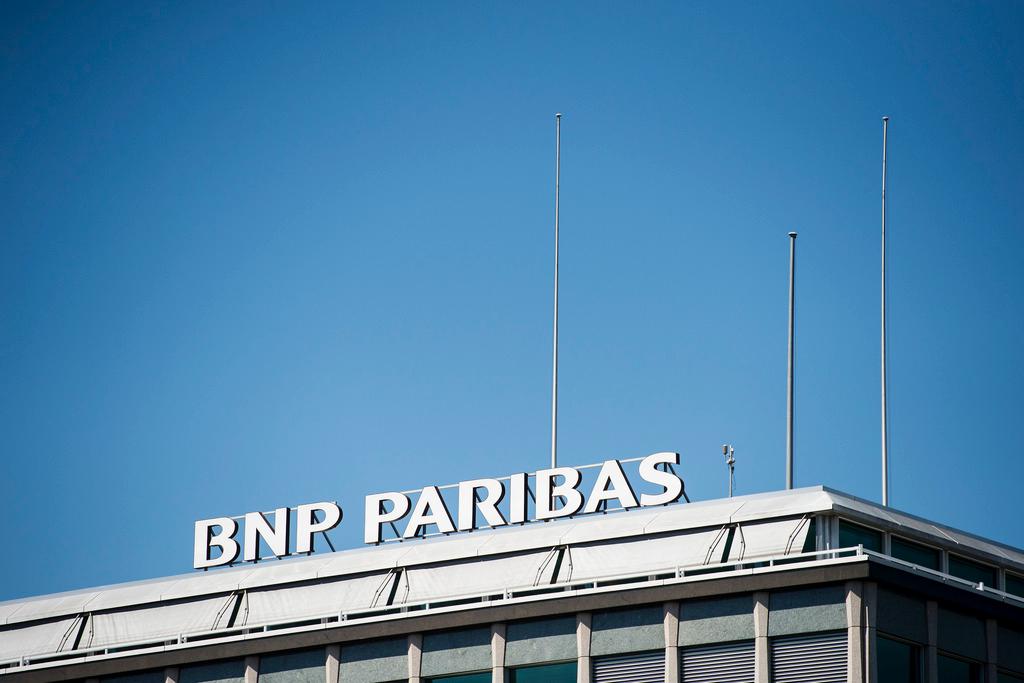Three further Swiss banks pay US fines

The US Department of Justice (DoJ) announced on Thursday that three Swiss banks would pay a combined penalty of more than $15 million (CHF15 million) as part of a bank programme to resolve criminal liability issues related to tax evasion.
Bordier, PBZ and PostFinance have all agreed to pay a settlement and have signed a non-prosecution agreement with the DoJ, meaning they will continue to cooperate with the department.
The Swiss bank programmeExternal link was established in August 2013 to address criminal liability issues surrounding tax evasion by US clients of Swiss banks. Under the programme, banks must disclose information about potential tax-related offences in connection with undeclared US-related accounts and pay any associated penalties. In exchange for the banks’ cooperation, the DoJ agrees not to prosecute the banks for tax-related criminal offences. More than 60 Swiss banks have joined the programme.
The largest fine – $7.8 million – was given to Bordier, founded in Geneva in 1844. In a statement on Thursday, the DoJ said Bordier was aware that some of its US clients were using their accounts at Bordier to evade US taxes and reporting requirements.
“In certain account files, Bordier had notes stating, ‘Declared: No.’ In other instances, the US taxpayer-client informed Bordier that he or she did not plan to declare his or her account in the United States,” it said.
The DoJ noted that for one account, a US taxpayer-client had refused to provide a copy of his passport, despite repeated requests from Bordier, and in 1998, this client signed bank forms with a fake signature to avoid potential recognition. This accountholder eventually told Bordier that he did not want to declare the account in the United States because he was a lawyer and would be disbarred.
“In a limited number of instances, Bordier actively facilitated the evasion of US taxes and reporting requirements for some of its US accountholders. For example, Bordier made repeated transfers of undeclared assets under $10,000 to the Montreal bank account of a US taxpayer-client in Canada in order to help the client avoid US tax and reporting obligations and keep the undeclared assets hidden,” it said.
“For one such transfer, the US taxpayer-client requested his ‘usual order of chocolate’ from Bordier in order to institute these transfers.”
The DoJ said that from 2008 to the present, Bordier maintained some 292 US-related accounts with a total of $440.8 million in assets under management.
‘Schwarzgeld’
PBZ was a private bank operating in Zurich. From 2001 to November 2013, it operated as AKB Privatbank Zürich and was a subsidiary of Aargau Cantonal Bank, which in 2013 sold it to Privatbank IHAG Zürich. From July 2014 it operated as PBZ Verwaltungs AG, which had its banking licence revoked in August 2014.
According to the DoJ, as early as 2008, PBZ knew that some US-related accounts held untaxed funds, which were described within PBZ in one instance as “Schwarzgeld” or “black money”.
“PBZ knew that US persons had a duty under US law to report their income to the Internal Revenue Service (IRS) and to pay taxes on that income, including all income earned in accounts maintained by PBZ in Switzerland. Despite this knowledge, PBZ opened, maintained and serviced accounts for US persons that it knew or had reason to know were likely not declared to the IRS or the US Department of the Treasury, as US law required,” the DoJ said.
It concluded that from at least 2008 through 2014, PBZ maintained and serviced 171 US-related accounts having a maximum aggregate value of more than $101 million. PBZ will pay a penalty of $5.57 million.
PostFinance
PostFinance, headquartered in Bern, is a wholly owned subsidiary of Swiss Post, the Swiss state-owned enterprise responsible for Swiss postal services.
PostFinance has 45 branch offices, all in Switzerland, and roughly 40% of Swiss residents have an account with PostFinance. Until 2008, the names of PostFinance’s customers were publicly available. PostFinance was not subject to Swiss bank secrecy laws until June 2013, when it received its licence to operate as a bank under Swiss law.
Before and since August 1, 2008 (see box), PostFinance was required by Swiss law and government mandate to provide accounts to people living in Switzerland, regardless of nationality, and to Swiss nationals living outside Switzerland. As a result, PostFinance provided accounts to US taxpayers living in Switzerland, as well as to Swiss nationals living in the United States, including US-related accountholders who transferred assets to PostFinance from UBS or other banks under investigation by the department.
The DoJ said in its statement on Thursday: “PostFinance was aware that citizens and resident aliens of the United States had a legal duty to report their assets and income to the IRS and to pay taxes on the basis of all their income, including income earned from accounts that PostFinance maintained on their behalf. Largely due to its obligations under Swiss law, however, PostFinance nevertheless opened and maintained undeclared accounts belonging to customers who were subject to US tax and were not complying with their US tax obligations.”
It said since August 1, 2008, PostFinance maintained a total of 2,731 US-related accounts having a maximum aggregate value of roughly $290 million. PostFinance will pay a penalty of $2 million.
In a statement on Thursday, PostFinance said this amount was “attributable to individual business relationships that could not be sufficiently documented”.
The non-prosecution programme
The non-prosecution agreement signed between Switzerland and the US in August 2013 sets out a programme for Swiss banks to avoid landing in the US courts on tax evasion offences.
Those banks that believe, or suspect, that they may have illegally accepted the assets of US tax cheats had to register by the end of 2013. Some 106 banks chose this route, although some may have had their arms twisted by the country’s financial regulator.
These banks had to supply the DoJ with documentation in 2014 showing their business activities in the US, including names of lawyers and other parties they dealt with and the names of their own staff involved in such business. They did not, however, have to provide the names or account details of their clients. Penalties will range from 20% of the value of assets held in accounts opened before August 1, 2008 to 50% in accounts opened after February 28, 2009.
Banks that have US clients but believe they complied fully with US tax law were able to enter the programme as category 3 between the end of July and December 31, 2014. The same entry window was open for category 4 banks that are so small they have no US exposure.
The DoJ did not allow 14 Swiss banks, or Swiss-based branches of foreign institutions, to join the programme because they were already under active criminal investigation in August 2013. These included Credit Suisse, which was fined $2.8 billion in 2014, Julius Bär, Pictet and the cantonal banks of Zurich and Basel.

In compliance with the JTI standards
More: SWI swissinfo.ch certified by the Journalism Trust Initiative




You can find an overview of ongoing debates with our journalists here. Please join us!
If you want to start a conversation about a topic raised in this article or want to report factual errors, email us at english@swissinfo.ch.